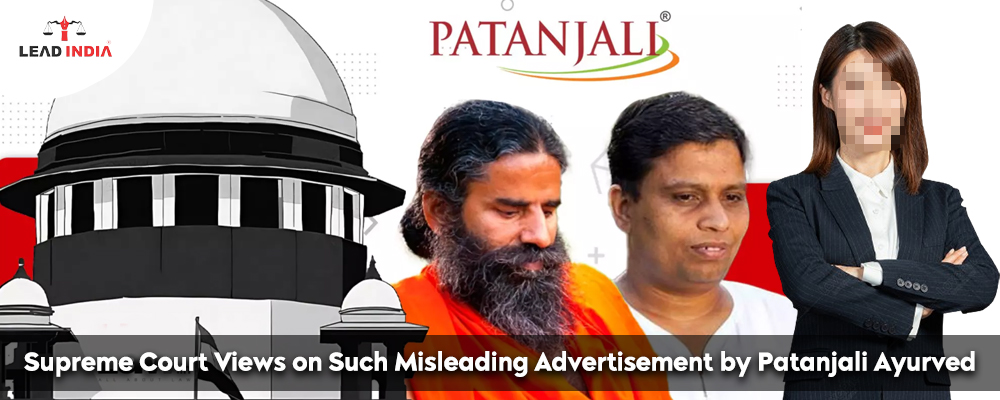The Consumer Protection Act of 2019 outlaws unfair trade practices, including misleading marketing, and provides methods for consumers to file complaints about misleading advertising.
The following are the categories of misleading ads:
- False claims: These are advertisements that make false statements about the features or benefits of a product.
- Exaggerated Claims: Advertisements that exaggerate a product’s benefits beyond belief.
- Omission of Material Information: Advertisements that conceal important information that consumers should be aware of.
- Comparative Advertising: Ads that unfairly criticize competitors’ products.
- Endorsements and Testimonials: Ads that contain false endorsements or testimonials.
- Health and Safety Claims: Advertisements that provide unsubstantiated health or safety benefits.
- Bait-and-switch tactics involve attracting users with false promises and then switching to alternative ones.
Need A Legal Advice
The internet is not a lawyer and neither are you. Talk to a real lawyer about your legal issue

Regulatory Authorities Dealing with the Issue:
- The Advertising Standards Council of India (ASCI) regulates Indian ads to ensure fairness and compliance with the ASCI Code.
- The Central Consumer Protection Authority (CCPA) regulates abuses of consumer rights, unfair trade practices, and misleading marketing that harms the public interest. It has produced the Guidelines for the Prevention and Endorsement of Misleading Advertisements 2022.
Patanjali Ayurved Case
The Supreme Court (SC) declined to accept yoga guru Ramdev and managing director of Patanjali Ayurved Balkrishna’s affidavits tendering unconditional apologies for publishing a “misleading” advertisement. The court stated that it was “not blind” and that the apologies were sent only after it was “caught on the wrong foot.”
The court also chastised the State Licencing Authority for its inaction on the issue, saying it would not take it lightly. The court further chastised the Uttarakhand government for neglecting to take action against Patanjali Ayurved for violating the statute.
The Supreme Court also chastised Patanjali Ayurved, led by Ramdev, for failing to follow its instructions in the deceptive ads case. The court ordered the corporation to address the contempt petition against it seriously.
The Supreme Court further chastised the corporation for continuing to post advertisements despite prior warnings. Patanjali, on the other hand, maintained that its media department was not aware of the injunction. Although Patanjali apologized for the lapse, the Supreme Court regarded it as mere ‘lip service’.
Patanjali Ayurved was required to produce two affidavits for distinct acts of contempt. The first affidavit explained why the corporation continued to distribute misleading advertisements after promising not to do so in court. The second affidavit dealt with its refusal to respond to the contempt notice issued to Balakrishna and the corporation.
The Supreme Court also chastised the central government, declaring that it, too, carried responsibility, and emphasizing that the government had chosen to turn a blind eye.
WHO FILED IT?
The Indian Medical Association (IMA) filed a suit in the Supreme Court in August 2022 after Patanjali ran an advertisement titled ‘Misconceptions Spread By Allopathy: Save Yourself And The Country From The Misconceptions Spread By Pharma And Medical Industry’.
The petition identified instances in which Ramdev referred to allopathy as a “stupid and bankrupt science” and claimed that allopathic treatment was to blame for COVID-19 deaths. The Indian Medical Association also blamed Patanjali for contributing to vaccine hesitancy during the pandemic. The IMA noted that the “continuous, systematic, and unabated spread of misinformation” coincides with Patanjali’s efforts to make misleading and baseless claims regarding the cure of specific diseases through the usage of Patanjali goods.
Violations made by Patanjali Ayurveda
- Patanjali Ayurveda has violated the Drugs and Magic Remedies (Objectionable Advertisements) Act of 1954 (DOMA). Patanjali violated DOMA Section 4 by propagating fraudulent advertisements.
- Patanjali violated Section 2(28) of the Consumer Protection Act of 2019 (CPA) by making false claims about curing various illnesses in their marketing, which constitutes “misleading advertisement”.
- Patanjali’s actions violated the pact signed between the Ministry of AYUSH and the Advertising Criteria Council of India (ASCI), demonstrating noncompliance with agreed-upon criteria for advertising tactics.
Lead India Law offers various legal services, such as free legal advice and internet information. We offer a platform where you can talk to a lawyer and ask legal questions. Lead India’s lawyers can help you with any legal matters. In India, Lead India provides free legal assistance online. In addition to providing legal advice online, Lead India allows users to ask professionals questions for free.



